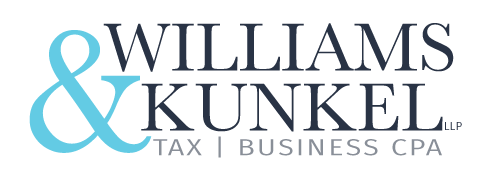If you haven’t filed your 2017 taxes yet, grab your shoebox of receipts and see if you qualify for these deductions.
Flower Mound Tax Help: These Tax Breaks Could Be Gone in 2018
By now, you know that the Tax Cuts and Jobs Act has overhauled the tax code, including nearly doubling the standard deduction, doing away with personal exemptions and trimming itemized deductions. Many of those changes take effect for 2018. That means that the 2017 tax year will be the last in which filers will submit their documents under the old law.
Here are the deductions and credits you should consider taking before you file your taxes.
Exclusion for forgiven debt
Generally, if a lender cancels all or part of your debt, that amount is considered to be income.
Here’s an exception: Filers who had a loan modification, foreclosure or short sale last year can exclude the amount of debt forgiven on their principal residence from gross income in 2017. This break, which would have expired, was among the “tax extenders” Congress recently approved.
Mortgage insurance premiums
This break, which allows homeowners to deduct the amount they’ve paid for mortgage insurance, was set to expire at the end of 2016. Congress renewed it retroactively for 2017 tax returns.
Deduction for qualified tuition costs
Here’s another break that’s back, thanks to the tax extenders. If you or your child are in college, you may be able to deduct tuition, books and supplies for your studies by up to $4,000.
Room and board, along with other personal expenses, do not qualify for this break.
Alternatively, you may take one of the education credits for your costs: the American opportunity tax credit, which is worth up to $2,500 per eligible student, or the lifetime learning credit, which is worth up to $2,000 per tax return.
Be aware that you can’t claim an education credit and the tuition deduction for the same expenses.
Energy efficiency incentives
Finally, Congress extended access to credits for energy-saving home improvements.
The credit for “nonbusiness energy property” is for homeowners who added certain efficient windows, doors and insulation. It’s subject to a lifetime limit of $500.
The “residential energy property credit” is also around for the 2017 tax year. It applies to homeowners’ purchase of qualified solar water heaters, geothermal heat pumps and other alternative energy equipment.
Filers should know that the IRS is still updating its systems to process returns claiming these energy-efficiency credits and certain other “tax extenders.”
At the moment, the agency is ready to handle returns that have claimed the extended breaks for mortgage insurance, discharged residence debt and qualified tuition.
Property taxes
Did you know that you can deduct property taxes on all of the homes you own?
Be aware: This break is due for some major changes. Starting in 2018, the deductibility of property taxes will be subject to the new $10,000 cap on state and local taxes or SALT.
Owners of multiple homes will feel the limitation on this tax break keenly.
Tax prep, investment fees and more
Going, going, gone.
This is the last year you can take miscellaneous itemized deductions. This includes those for tax preparation and investment fees and unreimbursed employee expenses. You can deduct these costs to the extent they exceed more than 2 percent of your adjusted gross income.
This tax break is on its way out.
Casualty losses
Here’s another casualty of the tax overhaul: This year is the last time you can claim a deduction for personal losses that you sustained in a given year due to an event such as a natural disaster, fire or accident.
Consequently, the total amount of your losses on personal property must exceed 10 percent of adjusted gross income.
Starting in 2018, however, you can claim a loss only if it occurs in an official disaster. This provision expires after 2025.
Call Williams & Kunkel CPA today in Flower Mound at 972-446-1040 to have a chat about your small business tax health.
In addition, you can connect with us to receive updates throughout the business week by following us on Twitter or LinkedIn or liking us on Facebook.
Source: CNBC

